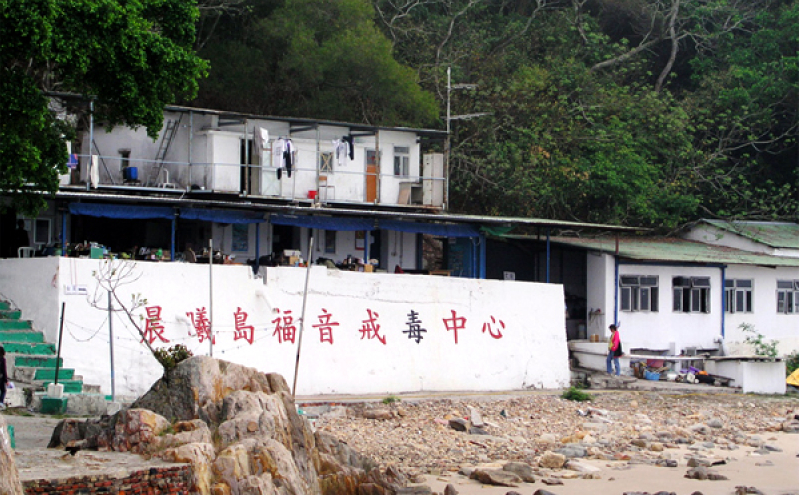
Drug-usages among youths in Hong Kong are becoming more prevalent. A Christian drug-rehabilitation ministry hopes to free these youths from their spiritual and physical bondages, so they can begin new lives.
Operation Dawn Hong Kong’s drug-rehabilitation ministry is located on Operation Dawn Island, which is also known as Town Island in the Sai Kung District of New Territories of Hong Kong. The drug-rehab students all live modestly, where all of the material supplies including food are shipped twice a week to the island by ship. Sometimes there can be food-shortages, especially when there are storms. The members all must cook on their own using fire and water.
An OPHK staff “Ah Cheung” said that in a level eight storm that happened two years ago he witnessed a wood cabin destroyed by the wind and its entire platform lifted up. Also, while the dormitories lack fire-prevention equipment, running water, and in-door bathroom, the need for reconstruction of Operation Dawn Island is an imminent must.
OPHK Executive Director Man-Li Chan Yip, daughter of the organization’s founder late Rev. John Paul Chan of Beautiful Gate Baptist Church in Hong Kong, shared that the shabby living conditions on the island pose as an obstacle for the younger generation to sign up; many parents cannot stand to see their children suffer. Besides, constructing a dormitory that passes the building regulations is of top priority, but it is difficult to begin the construction with a shortage in funding.
The overall costs to reconstruct the drug-rehabilitation facilities are 50 million HKD, and the payment for the first phase of construction requires 16 million HKD. Although Hong Kong Narcotics Division has already distributed 6 million HKD, the remaining amount would have to be raised through their own fund-raising initiatives.
Beginning next March, OPHK will implement new fund-raising ideas. They will host outdoor activities on the island and lead the participants to see Operation Dawn Island on foot, which will give the visitors a personal experience on the ministry’s operation and the island’s setting. The hope is to provide these visitors the opportunity to understand the ministry’s needs and thus provide assistance.
Yip hopes that after the reconstruction the island’s holiday resort-like setting will allow students to enter the dormitory and get to understand about the consequences of drug usage, which will encourage the work of education.
While OPHK is the first ministry in Hong Kong that helps drug-addicts quit drugs by the gospel, its founder Rev. Paul Chan has chosen the Bible passage from Romans 13:12 – “The night is nearly over; the day is almost here. So let us put aside the deeds of darkness and put on the armor of light” – as the ministry’s motto.
When Chan first started the ministry in 1968, he and his son passed out flyers to recruit students in Long Ke Wan, Sai Kung District in the New Territories of Hong Kong. After three years, the drug-rehab center has over 30 participants. In October of 1976, the government approved of OPHK to relocate to Town Island, which was renamed to Operation Dawn Island, as their permanent base.
In the last several decades, OP’s drug-rehabilitation ministry has expanded to overseas to countries such as Taiwan, Thailand, United States, Canada, and India.
In September this year, Chan died of illness at the age of 88. As many of his own students have become the founders of many local and overseas gospel drug-rehabilitation centers, Chan’s legacy of helping drug-users quit by the gospel of Jesus Christ will continue to be passed on.
With the ministry’s recent mark of 40th year anniversary, OPHK’s next goal is to serve the drug-addicts in mainland China and the 13-19 year old youths in Hong Kong.






